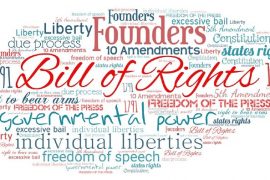Deborah Orr will go down in the Guardian hall of shame as the journalist whose antisemitic smear in a column was so explicit she was evidently pressured to issue an apology (albeit a mealy-mouthed one), and whose commentary was so hateful that Israel’s ambassador to the UK cited it as an egregious example of British antisemitism. She also featured prominently in HonestReporting’s 2011 Dishonest Reporting award, which the Guardian won by a landslide.
Here’s the most important passage in Orr’s essay, Is an Israel life really more important than a Palestinian’s?, which was dripping with contempt for Jewish citizens of Israel.
“It’s quite something, the prisoner swap between Hamas and the Israeli government that returns Gilad Shalit to his family, and more than 1,000 Palestinian prisoners to theirs…[which is] an indication of how inured the world has become to the obscene idea that Israeli lives are more important than Palestinian lives.”
“At the same time, however, there is something abject in [Hamas’s] eagerness to accept a transfer that tacitly acknowledges what so many Zionists believe – that the lives of the chosen are of hugely greater consequence than those of their unfortunate neighbors. “[emphasis added]
The capacity to impute racism to Israel because it freed over a thousand Palestinian prisoners (many serving sentences for lethal attacks against Israeli civilians) to gain the release of one Israeli demonstrates the seemingly unlimited capacity of anti-Zionists to vilify the Jewish state in response to any political phenomenon.
Regarding her swipe at “the chosen”, Guardian readers’ editor Chris Elliott, in a piece in November curiously titled “on averting accusations of antisemitism“, included this clear reference to Orr:
Two weeks ago a columnist used the term “the chosen” in an item on the release of Gilad Shalit, which brought more than 40 complaints to the Guardian, and an apology from the columnist the following week. “Chosenness”, in Jewish theology, tends to refer to the sense in which Jews are “burdened” by religious responsibilities; it has never meant that the Jews are better than anyone else. Historically it has been antisemites, not Jews, who have read “chosen” as code for Jewish supremacism.
While Orr has avoided commenting on the Middle East since then, she hasn’t been quiet on Twitter (see here and here ); a forum which often serves as journalists’ Id, allowing them to enter political territory they otherwise wouldn’t dare go, thus the ubiquitous disclaimer: “My Tweets are my own“.
Indeed, only a couple of weeks after the “chosen people” row, Orr, in an exchange with a critic, Tweeted this:
Her Tweet couldn’t be more clear: Jews/Zionists wield power so immense that they can silence Israel’s critics – a suggestion that’s laughable in light of the obsessive criticism the Jewish state receives in the media, from self-described “activists” and at international bodies such as the UNHRC. I’ve often joked that if Zionists are indeed engaged in a concerted effort to silence their critics, they’re doing an awfully bad job.
Orr’s latest foray into the debate over Israel was her reply to a CiF Watch Tweet, which noted Orr’s history of Jew baiting in the context of a thread inspired by a recent Commentator piece about Guardian diary editor Hugh Muir. (Also see this piece on Muir).
Here’s another CiF Watch Tweet, citing a relevant example of such Guardian behavior:
Orr then Tweeted the following responses:
Here’s the first one, clearly suggesting that she still defends her reprehensible November Guardian essay on the Shalit prisoner deal.
Admittedly, the rhetorical limits of Twitter makes it impossible to adequately express complex ideas, but I’ll quickly try to unpack this.
By “your”, she could be referring to CiF Watch the organization, myself, or our cadre of contributors and volunteers, or perhaps Zionists and/or Jews. But, either way, we stand accused of engaging in a (“paradoxical”) “aggressive” defense of our “victimhood”, rendering us unserious.
I don’t think it’s unfair to connect these words with her Tweet noted above from November.
Zionists, believes Orr, (who she already established are burdened with racist notions of their own superiority) attempt to silence their critics.
How do we achieve such a herculean task?
Per her most recent Tweet, Orr may think we cynically exploit our past victimhood in an attempt to gain impunity from current sins.
If this is her proposition it certainly isn’t the first time Jews/Zionists have stood accused of engaging in such moral blackmail. Indeed, a quite familiar trope used by antisemites against Zionists and their Jewish supporters is that they exploit the Holocaust and past antisemitism to blunt criticism about Israel’s crimes against Palestinians.
While I can’t of course get into Orr’s mind, her columns and Tweets certainly erode any hope that she used the response to her November Guardian essay as an opportunity to engage in serious self-reflection about the dangers of engaging in Judeophobic narratives.
I’m very curious to hear readers’ thoughts on Orr’s Tweet, and whether folks think I’m reading too much into her 121 character missive.
Related articles
- Clip of Israeli Amb to UK, Daniel Taub, blasting Deborah Orr at ‘Big Tent for Zionism’ conference (cifwatch.com)
- Another pejorative reference to Jews as “Chosen People” by a Guardian contributor (cifwatch.com)
- Guardian’s duty to Jews on Yom HaShoah? Don’t publish accusations that we’re “supremacists”! (cifwatch.com)
- Lost in anti-Zionist translation? Guardian misquotes Noam Shalit on Palestinian hostage taking (cifwatch.com)
- Guardian “journalist” Style Guide related dilemmas: Palestinian “Terrorism” edition (cifwatch.com)
- My speech on countering delegitimization @ ‘Big Tent for Zionism’ conference: Manchester, Nov. 27 (cifwatch.com)
- Ghetto Jews: Most unintelligible & offensive Israel related Guardian letter ever? (cifwatch.com)









